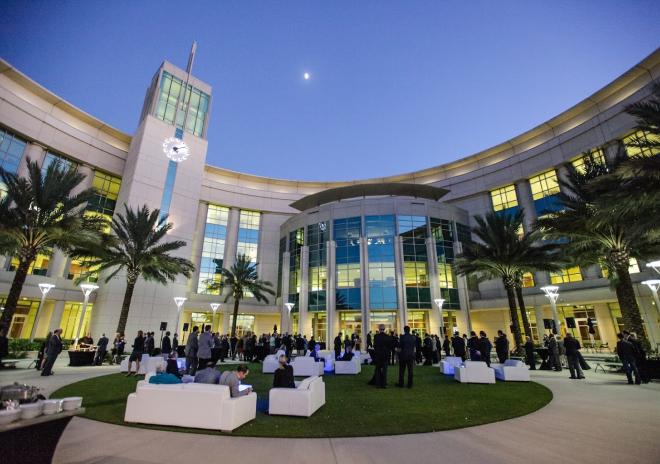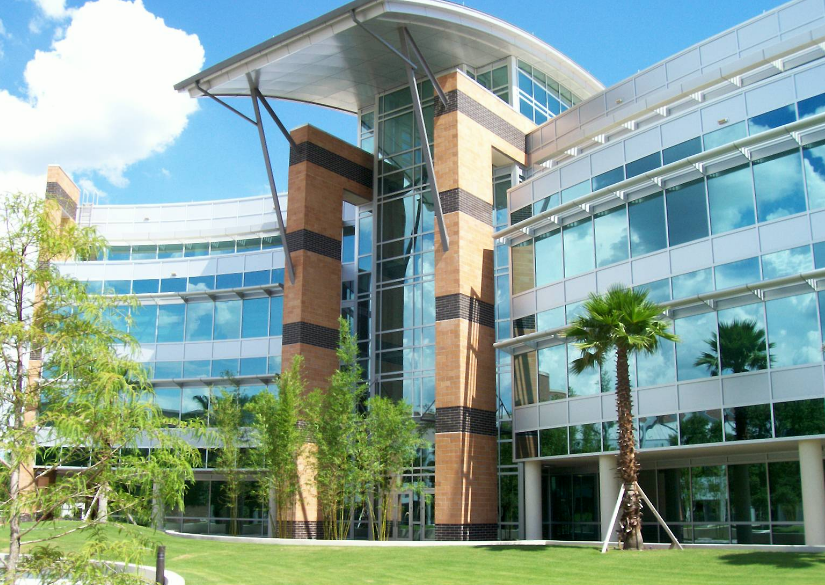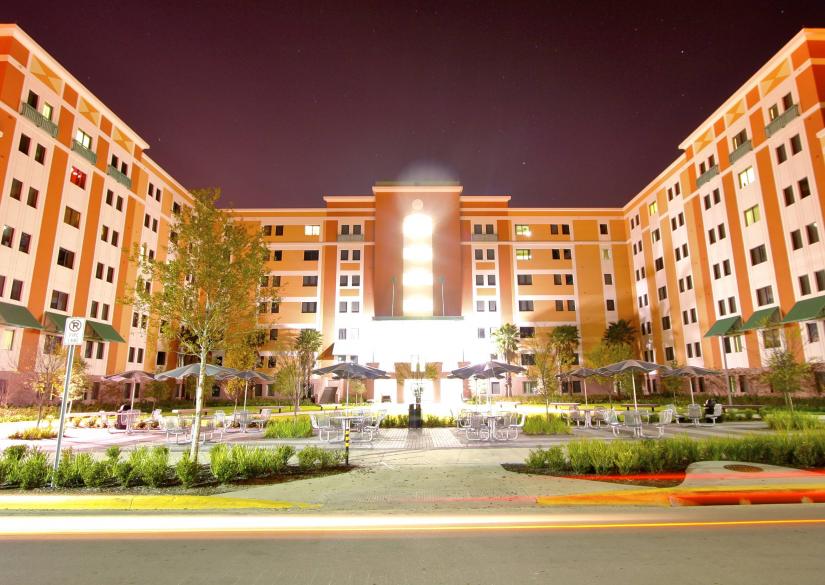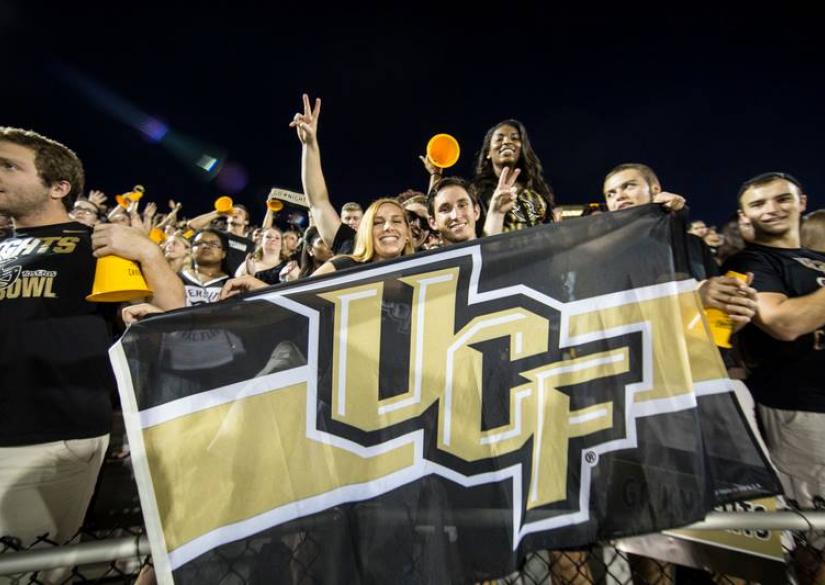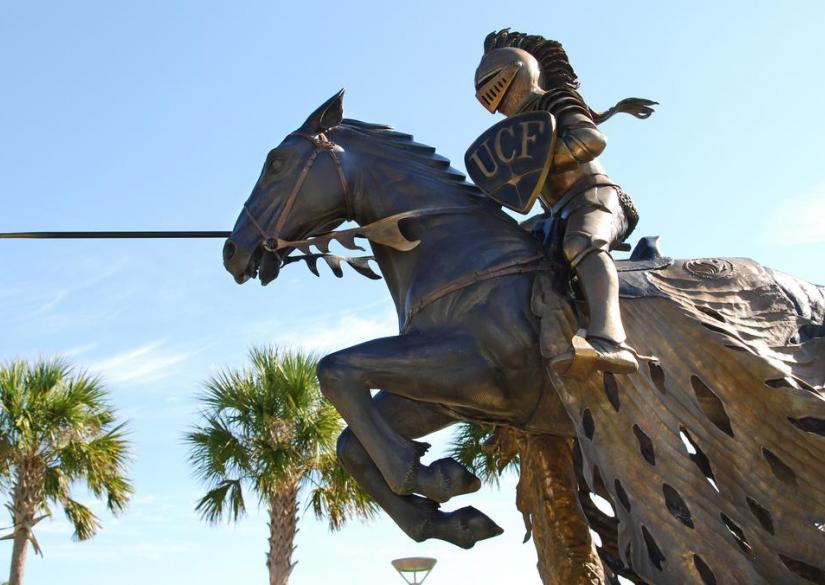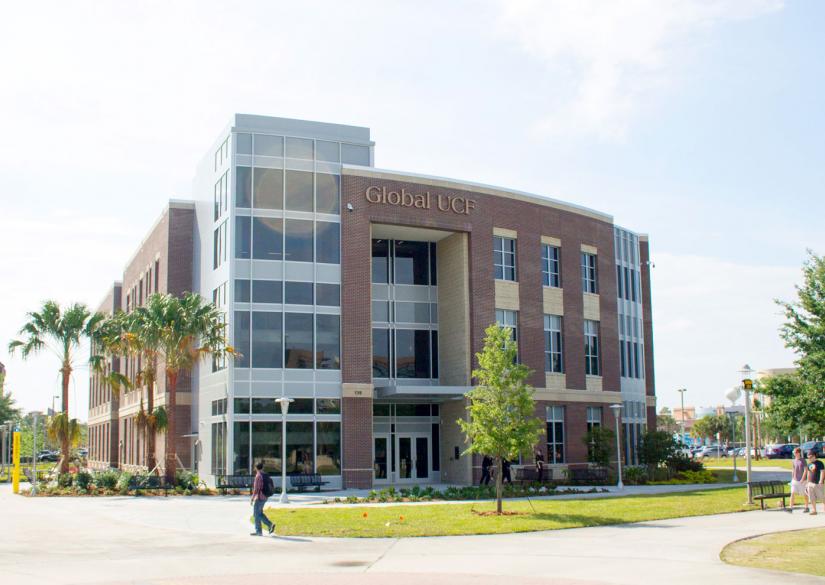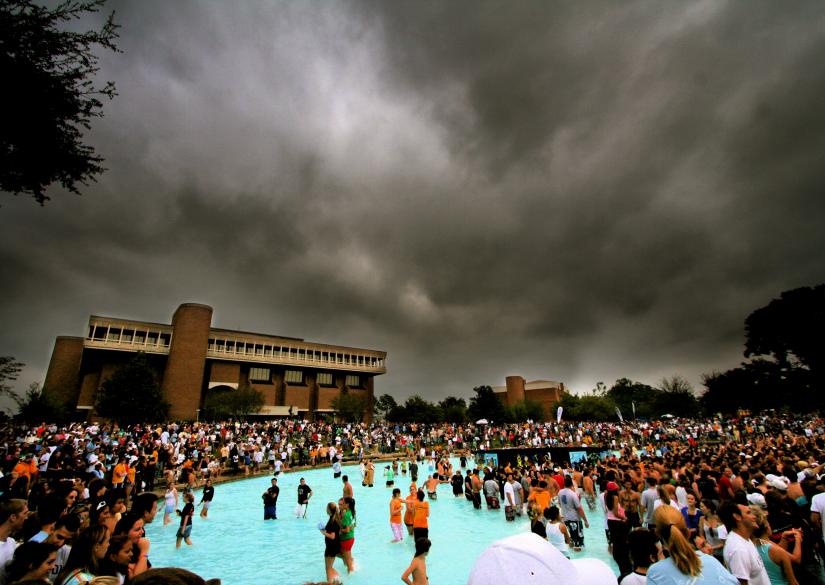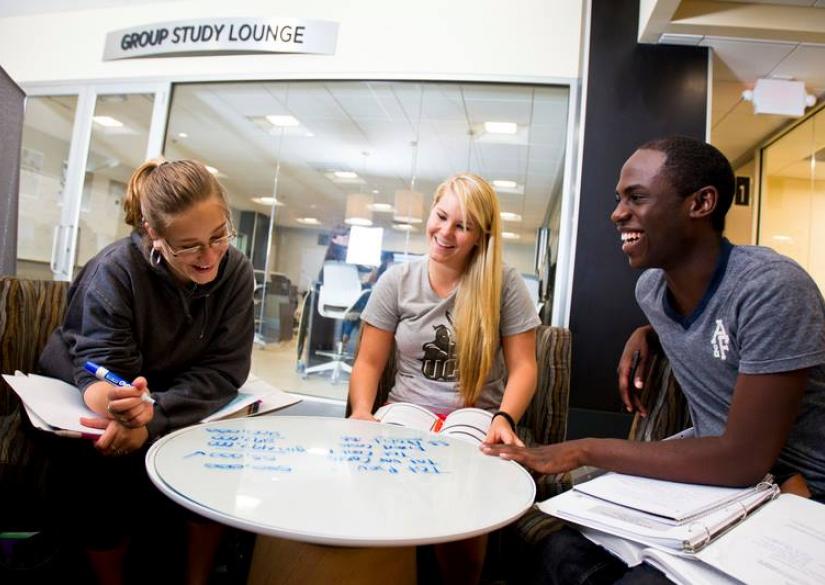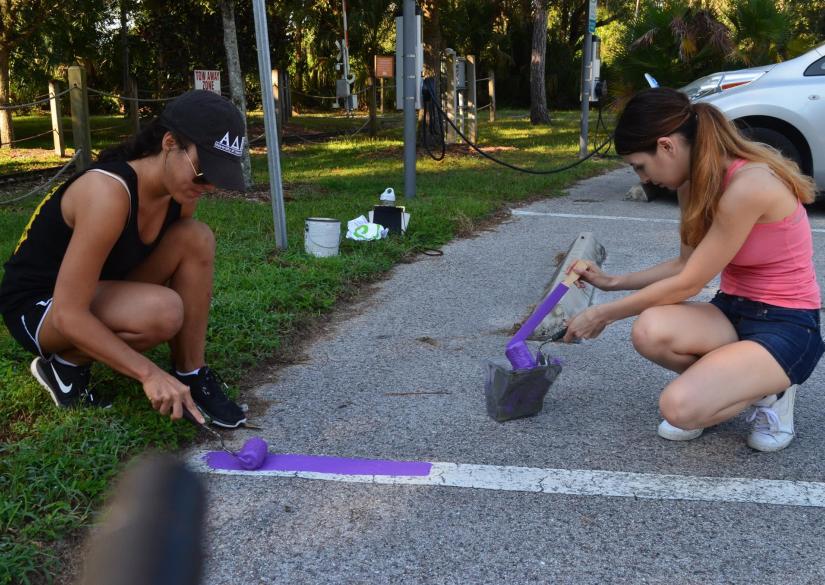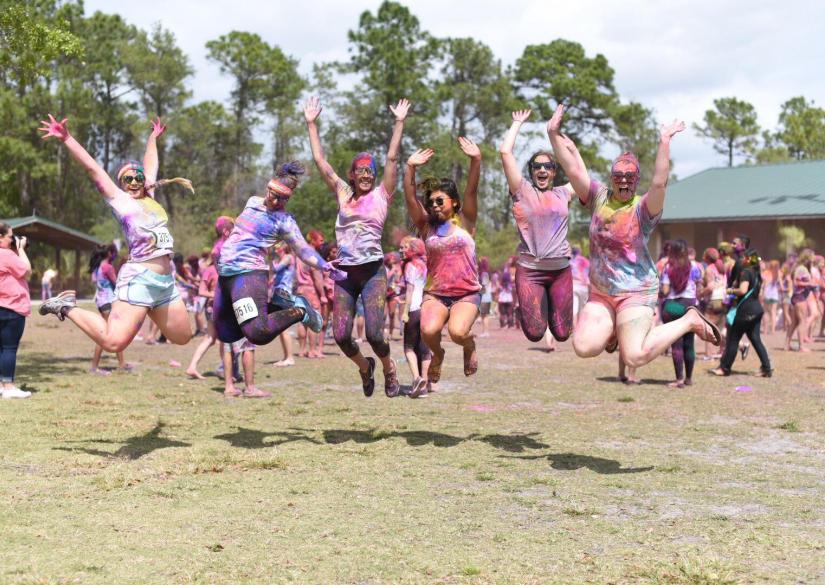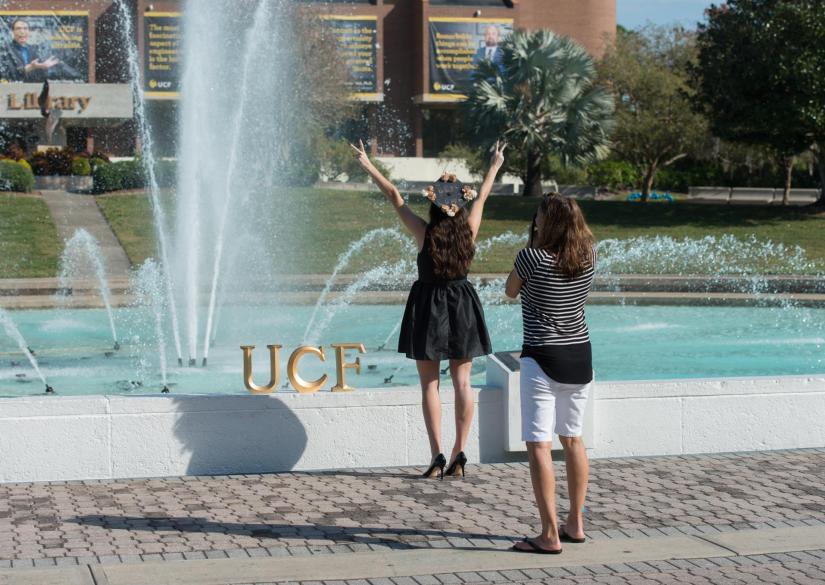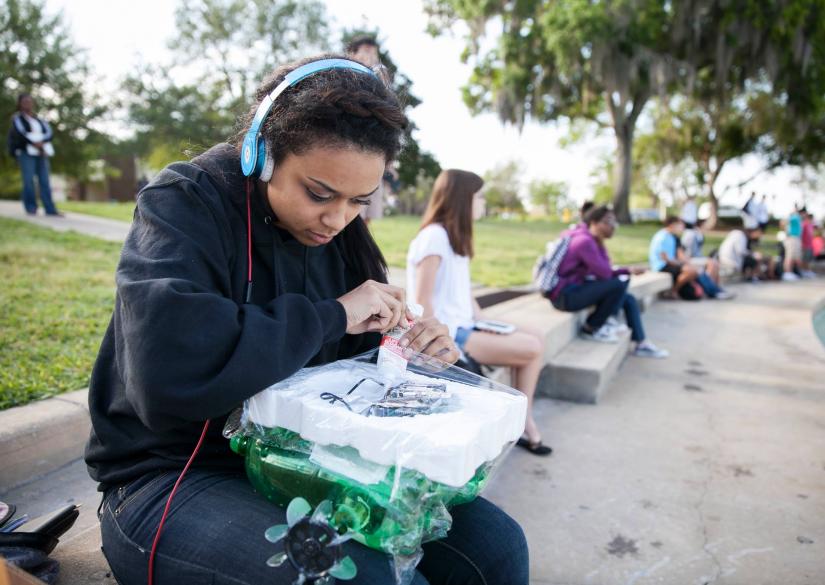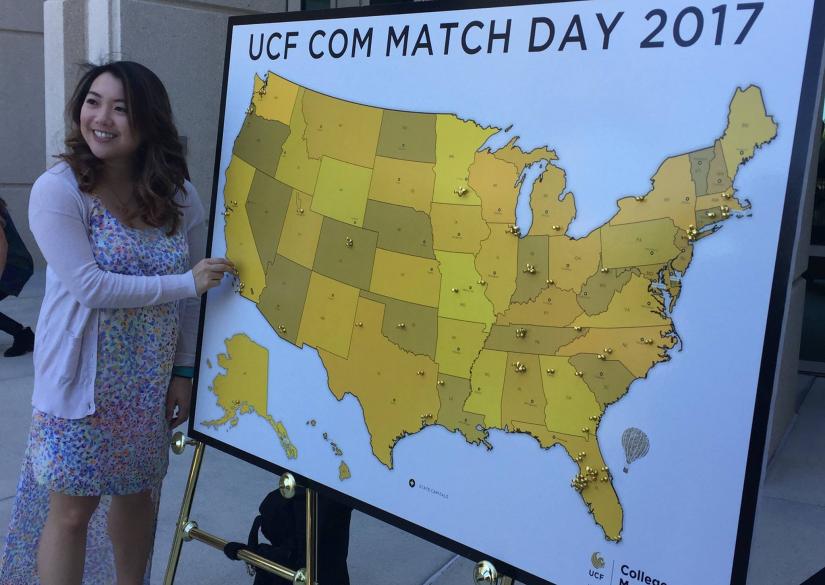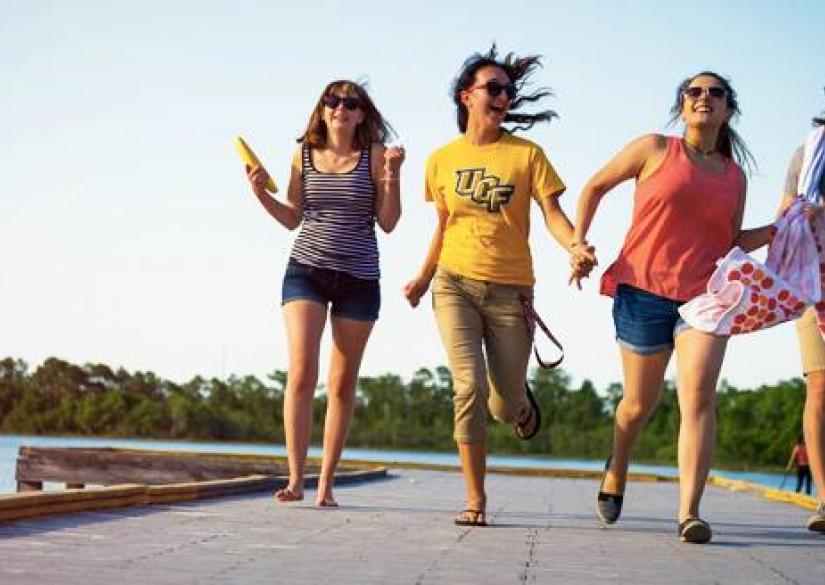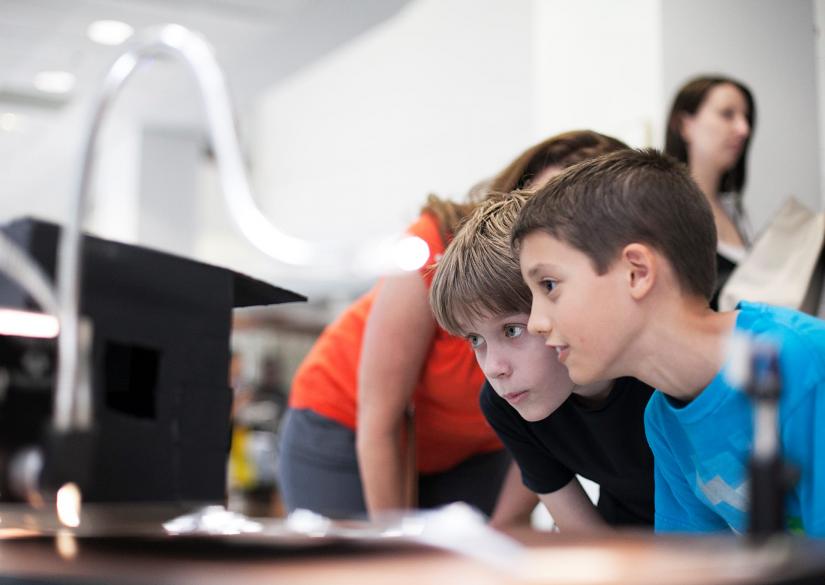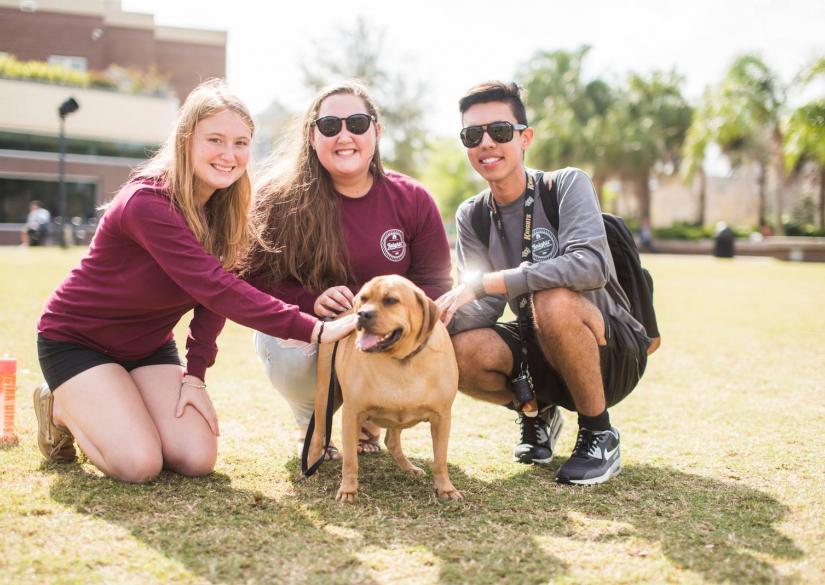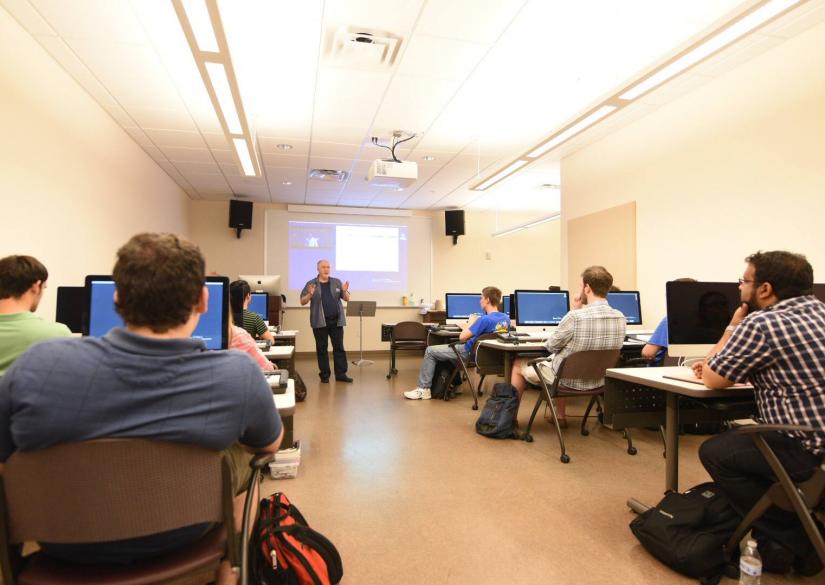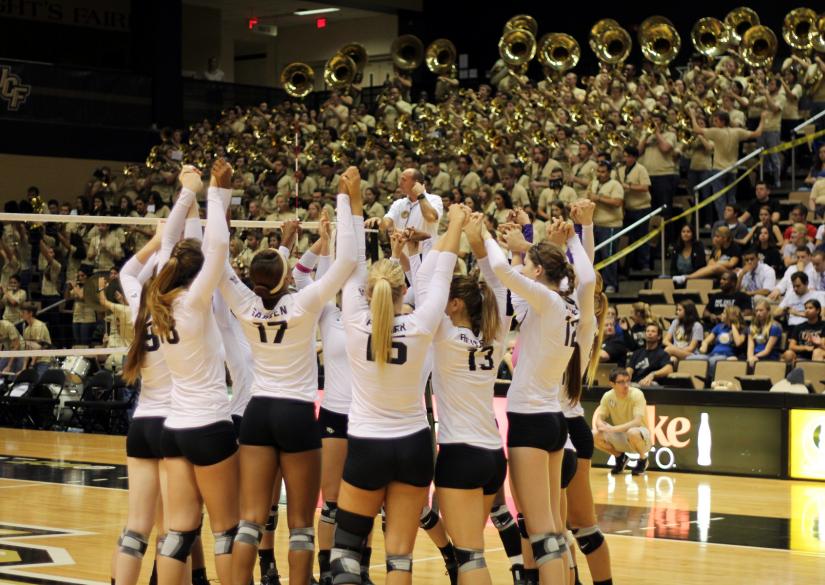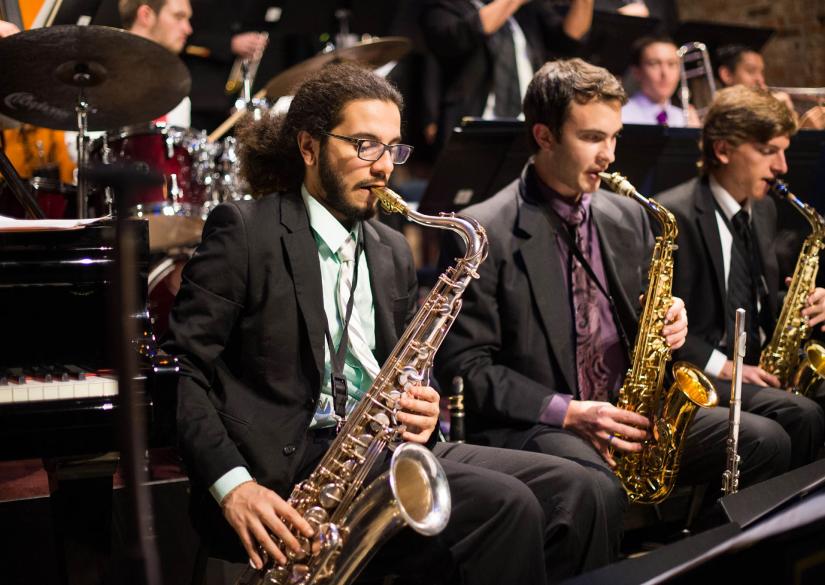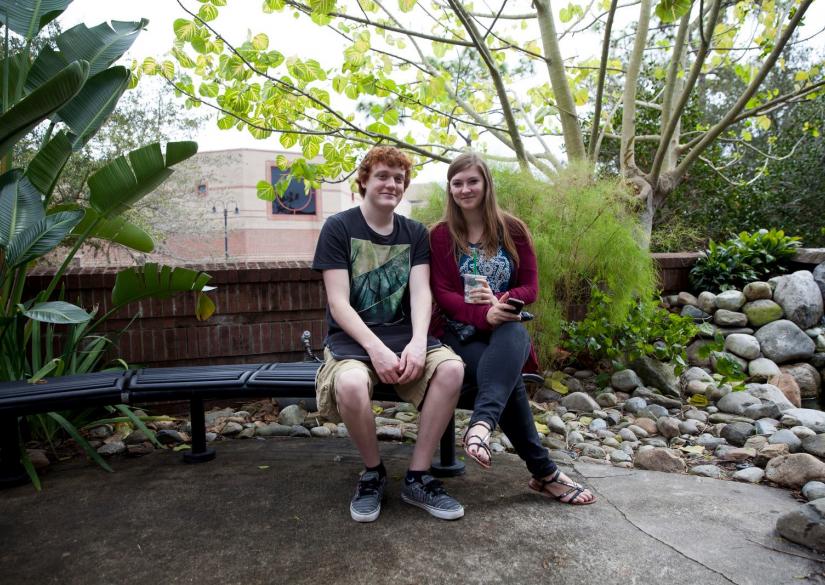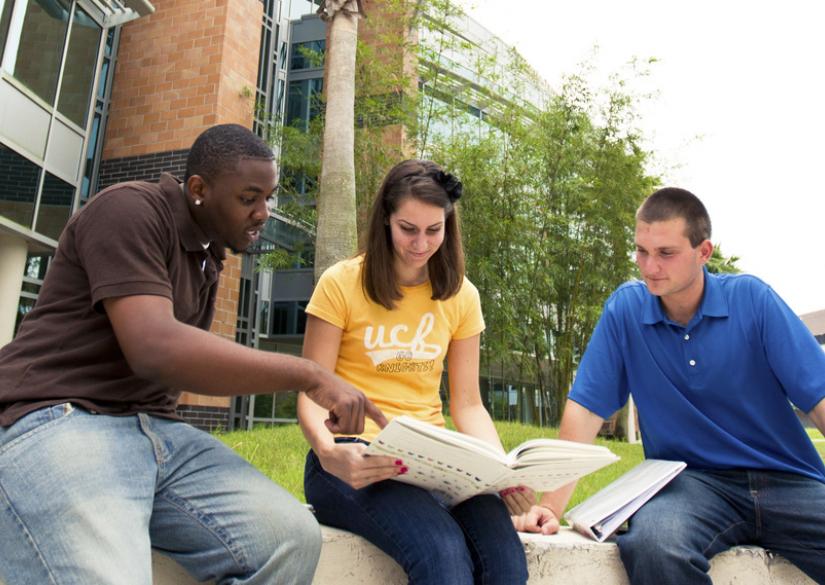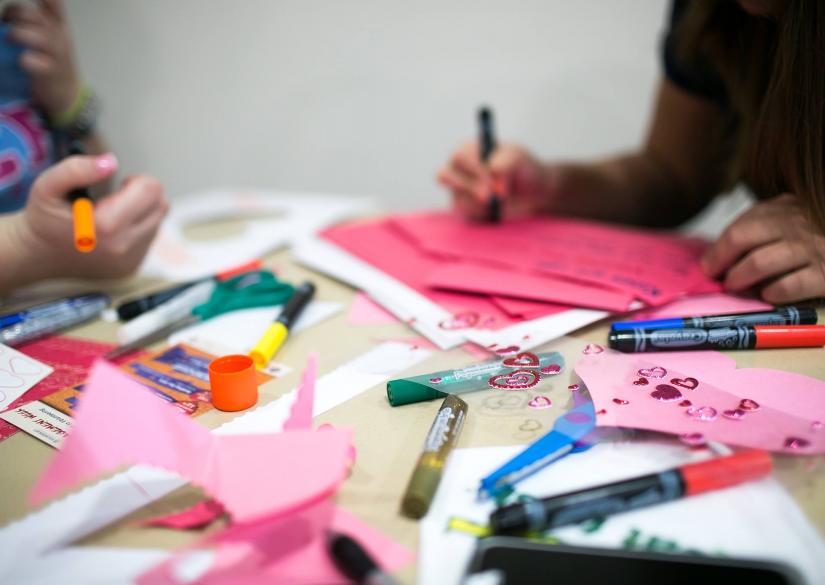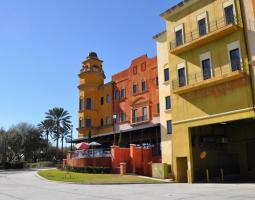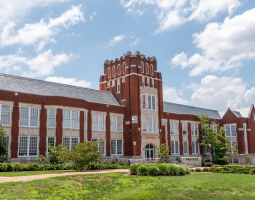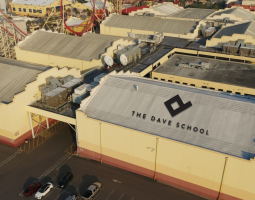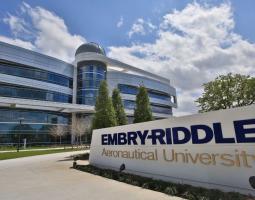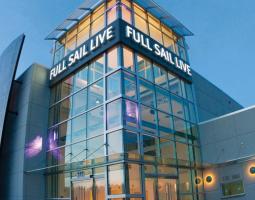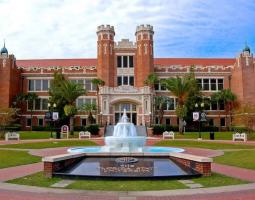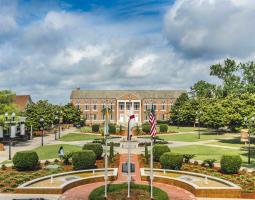University of Central Florida
Programs and prices, tuition fees in University of Central Florida
About the educational program: A bachelor's degree at the University of Florida can be obtained in more than 200 specialties that are taught at 12 colleges.
List of colleges:
- College of Arts and Humanities;
- College of Business Administration;
- College of Education and Performance Improvement;
- College of Engineering and Computer Science;
- College of Postgraduate Education;
- College of Public Health and Socio-Political Sciences;
- Medical College;
- College of training of junior and average medical personnel;
- College of Optics and Photonics;
- The College of Hotel and Restaurant Business "Rosen";
- College of Natural Sciences;
- College named after Barnett.
Among the most popular disciplines among disciplines are the following:
- Business;
- Medicine;
- Criminology;
- Health and social care;
- Public relations;
- Psychology;
- Physics;
- Tourism and hospitality.
About the educational program:
- Age of participants: from 17 years;
- Duration of the programs: 2 semesters (9 months), 3 semesters (12 months);
- Starting dates: January, May, August;
- Level of English:
- Global Achievement Academy 2 - University Integration: IELTS 6.5 (indicators in all sections at least 6.0), TOEFL 79, Pearson's Test of English 69;
- Global Achievement Academy 2: IELTS 5.5 (scores in all sections at least 5.0), TOEFL 68, Pearson's Test of English 50;
- Global Achievement Academy 3: IELTS 5.0 (indicators in all sections no less than 4.5), TOEFL 60, Pearson's Test of English 45.
- Educational level: certificate of secondary (complete) general education;
- Language of instruction: English.
About the educational program: The University offers international students admission to the undergraduate program through a special adaptation program - International Year One. The transition from high school in your country to a university in the US can be associated with difficulties in the language, new ways of learning and a new society and home. The Global Achievement Academy courses are designed to facilitate the processes of adaptation and integration into American culture and university life, as well as to provide students with the academic support necessary for training in new conditions for themselves. The advantage is that they pass for students without loss of time, and after graduation students go to the second course of the chosen bachelor's degree. There are three types of programs:
- Academy of Achievements 2 - University Integration (Global Achievement Academy 2 - University Integration) (2 semesters);
- Academy of Achievements 2 (Global Achievement Academy 2) (2 semesters);
- Academy of Achievements 3 (Global Achievement Academy 3) (3 semesters).
In turn, each type includes three directions:
- Humanities and Social Sciences;
- Science, technology, technology and mathematics;
- Business management and hospitality management.
Regardless of the type and direction of training, each participant has the following advantages:
- Flexibility of training. According to the standards accepted in the USA, the student can choose what he is interested in, change priorities and vary courses.
- Personalized manual. Each student receives professional support at all stages of training, from the process of filing documents to meeting at the airport, from check-in to the registration of a SIM card for the phone.
- Professional support service. The University takes care of its students both in classroom and abroad. Special counselors on student issues are able to solve any issue related to study or life. Moreover, each mentor is assigned his mentor from among the undergraduate students who also provide them with all the necessary assistance in adaptation and study.
- Small sizes of groups. Each student receives maximum attention and individual support.
- Experience of American culture. Special courses "College strategies for success" are designed to help students in transition to university life and create a solid academic foundation, developing important life and learning skills. Students will also learn and apply critical thinking skills on diversity and social justice, career preparedness and other topics that contribute to the development of success at the university during the first and subsequent training courses.
In addition, students attend seminars on career development. Through Accelerator Career, students develop their professional skills and get a clear idea of how knowledge, interests, motivation and personal experience give an immediate advantage when it comes to starting a career. A career accelerator gives skills and knowledge for success, regardless of what kind of graduate path a student chooses: enrolling in a master's program, career development, starting a business or executing a finished one (for example, in a family business). The course is designed exclusively for foreign students, has unique seminars, work experience in a real company, intercultural group work and professional training.
All students also actively develop language skills. Students on the programs "Academy of Achievements 2" and "Academy of Achievements 3" receive classes in English and significantly improve their level during their studies. All pupils are accustomed to using language in everyday life and university education.
Each training course is evaluated in a certain number of credits, after completion of the training the students pass to the second year of the bachelor's degree.
Types of programs and sample curriculum:
Academy of Achievements - University Integration (Global Achievement Academy 2 - University Integration) (2 semesters).
A special course for students who have a high level of English. Two semesters lasts and includes the academic, cultural, and professional support necessary for successful teaching. Mentors provide students with all the necessary assistance, including personal consultations for the prompt resolution of all emerging issues. For two semesters students recruit from 21 to 24 credits and pass to the second course of the chosen specialty. Features of the program:
- Requires a high level of English;
- Serious academic courses / disciplines selected by academic advisers in accordance with the curriculum and the students' opportunities;
- Extended workshops on career skills;
- Programming training.
Disciplines of the curriculum (an approximate version):
1. Semester 1:
- College Strategies for Success;
- English Language (Level 1);
- Conversational communication;
- Course of choice: Mathematics / Intermediate Algebra / College Algebra / Preliminary Calculus / Trigonometry / Calculus (Level 1).
2. Semester 2:
- English (level 2);
- The Fundamentals of Science;
- Course of choice (based on direction);
- The course to choose from (based on the direction).
Academy of Achievements 2 (Global Achievement Academy 2) (2 semesters).
Standard training program for students who need language support. In addition to support and counseling, it includes English practice both in separate classes and during lectures in academic disciplines. Last two semesters, during which students earn 24-30 credits and continue their education in the second year of the chosen bachelor's program. Features of training:
- It takes into account the individual needs of each student, both in academic and linguistic terms;
- Support on all issues;
- Training in English with social and academic needs;
- Integration with open and closed courses (program participants attend classes both with their classmates and with the main student groups).
Sample training plan:
1. Semester 1:
- College Strategies for Success;
- English for Academic Purposes (Level 2);
- Conversational communication;
- Course of choice: Mathematics / Intermediate Algebra / Algebra / Pre-Calculation / Trigonometry / Computation (level 1).
2. Semester 2:
- English (level 2);
- The main subject (in its direction);
- Social foundations;
- Cultural foundations;
- The course to choose from: basic computer skills / algebra for college / computing / trigonometry / computing 1 / computing 2.
Academy of Achievements 3 (Global Achievement Academy 3) (3 semesters).
Extended program for students who need serious language support. During three semesters, students study a complex of academic disciplines and various courses on adaptation and are actively engaged in English. The small size of classes, the high professionalism of teachers and mentors, the careful development of programs stipulates rapid and qualitative progress in the level of language and success in the disciplines. During the period of study the student receives from 21 to 45 credits and after the transition passes to the second year of study for the chosen specialty. Features of the course:
- A three-part program combining linguistic, cultural and academic support;
- Global English support: training, tutoring, mentoring, academic counseling and support;
- Involvement in the cultural and social experience of the university and the country as a whole.
Subjects of the program (indicative plan):
1) Semester 1:
- Strategies in college for success;
- Fundamentals of student life in the US;
- English for Academic Purposes (Level 1);
- Florida: people and places;
- The course to choose from: mathematics / algebra / pre-computation / trigonometry / computation (level 1).
2) Semester 2:
- Strategies in college for success: career skills;
- English for Academic Purposes (Level 1);
- Fundamentals of Leadership;
- Communications;
- Subject to choose from (directions): American National Government / Chemistry 1 / Chemistry 2;
- The subject of choice (based on the direction): basic statistics / computer basics for business / algebra / pre-computation / trigonometry / calculations 1 / computing 2.
3) Semester 3:
- Strategies in the College for Success: Academic Planning;
- Advanced leadership fundamentals;
- English;
- The basic discipline (according to one's direction);
- The subject of choice: the basics of culture / chemistry 1 / chemistry 2 / chemistry 3;
- The subject to choose from: person / calculations / trigonometry / calculations 1 / computing 2 / physics for engineers and scientists.
The areas of study and undergraduate programs available after completing the International Year One course:
1) Architecture, art and design:
- Architecture;
- Digital Media.
2) Business, finance and economics :
- Accounting;
- Economics and business;
- Finance;
- Integrated business;
- Control;
- Marketing;
- The property;
- Restaurant and food service management.
3) Education:
- Technical Education and Industry;
- Early childhood development;
- Elementary education;
- Student education;
- Teacher Education: Art.
4) Engineering and Information Technology:
- Aerospace Engineering;
- Civil engineering;
- Computer technology (directions: integrated trace digital circuits);
- Computer science;
- Construction machinery;
- Electrical Engineering;
- Electrical engineering (directions: messages and signal processing, integrated trace, power and renewable energy environment);
- Environmental Engineering;
- Industrial Engineering;
- Information Technology;
- Mechanical engineering.
5) Hospitality and tourism:
- Entertainment management;
- Event Management;
- Hospitality Management.
6) Law, international relations and politics
- Criminal Justice;
- International and global research;
- Legal research;
- Political science;
- Public administration.
7) Liberal arts:
- Anthropology;
- Communication and Conflict;
- English: creative writing;
- English literature;
- English: Technical Communication;
- French;
- History;
- Humanitarian and cultural studies;
- Interdisciplinary research;
- Interdisciplinary research (gender, race and sexuality research);
- Journalism;
- Latin American Studies;
- Philosophy;
- Psychology;
- Radio / TV;
- Religion and cultural studies;
- Social sciencies;
- Social work;
- Spanish;
- Advertising: public relations.
8) Music, theater and art:
- Music (directions: jazz studies, musical composition, music program);
- Photo art;
- Theater art;
- Theatrical studies;
- Theater (directions: acting, design and technology, music theater, theater management);
- Art (directions: history of art, studio art, visual arts and media);
- Film art;
- Movie: Theaters;
- Music art;
- Musical education.
9) Care, Health and Sociology:
- Communication Sciences and Disorders;
- Informatics in the sciences of health and information management;
- Health Science;
- Health Administration;
- Human Communication;
- Health Care.
10) Science:
- Biomedical Sciences: Preliminary Concentration;
- Biotechnology;
- Chemistry;
- Chemistry: Biochemistry;
- Environmental studies;
- Forensic science (directions: biochemistry, chemistry);
- Mathematics;
- Medical laboratory sciences;
- Physics;
- Sociology;
- Statistics;
- Actuarial science;
- Biology;
- Biology: preliminary concentration;
- Biomedical Sciences;
- Biomedical sciences (directions: molecular biological trace, molecular microbiological trace, neurology).
11) Sport, Fitness and Nutrition:
- Athletic training;
- Sports and physical exercises.
Beginning of classes for the International Year One: January, May, August.
The academic year at the university is divided into three semesters:
- Autumn semester: August - January;
- Spring semester: January - May;
- Summer semester: June-July.
REQUIREMENTS FOR RECEIPT
For participants of the International Year One (Undergraduate accelerator) programs:
- Age of participants: from 17 years;
- Level of English:
- Global Achievement Academy 2 - University Integration: IELTS 6.5 (indicators in all sections at least 6.0), TOEFL 79, Pearson's Test of English 69;
- Global Achievement Academy 2: IELTS 5.5 (scores in all sections at least 5.0), TOEFL 68, Pearson's Test of English 50;
- Global Achievement Academy 3: IELTS 5.0 (indicators in all sections no less than 4.5), TOEFL 60, Pearson's Test of English 45.
- Educational level: certificate of secondary (complete) general education;
- GPA:
- Global Achievement Academy 2 - University Integration: 2.5;
- Global Achievement Academy 2: 2.5;
- Global Achievement Academy 3: 2.5.
Academic Preparation for IELTS
- Age – from 16 years old,
- The training period is six weeks.
This six-week course will help international students prepare effectively for one of the most important language tests – IELTS.
Classes are held on Tuesdays and Thursdays from 17:00 to 18:30. At them, under the guidance of qualified teachers, students will consider:
- Strategies for better development, writing assignments,
- Improving the speed and ease of speaking,
- Types of questions for listening, reading,
- Development of academic vocabulary,
- Time management strategies,
- Note-taking skills,
- Self-editing.
In the lessons, students will understand how each section of the test is evaluated, practice on materials from previous years. Based on annual results, this course leads international students to excellent IELTS scores, which allows them to gain admission to English-speaking universities.
Intensive English Language Programme
- Age – from 16 years old,
- The duration of training is from six weeks.
The Intensive English Program offers students to improve their reading, writing, speaking, and listening skills in a short amount of time. Upon admission, students pass a placement test, according to the results of which they fall into a small group of a certain language level. The curriculum adapts to the skills of the group, providing suitable material, topics and areas of study for the fastest development of skills.
The program takes place throughout the year, each season has two sessions:
- Autumn: August-October, October-December,
- Spring: January-March, March-April,
- Summer: May-June, June-August.
Depending on the initial level of linguistics, a student can study both during one session (the cost is indicated for one session) and for several seasons. Each session includes 24 academic hours of classes per week, taking place from Monday to Friday.
Graduate Programs
- Age – from 21 years old,
- The duration of training is one to two years.
Master's programs will provide students with more in-depth knowledge in the chosen scientific field, will give them the opportunity to gain research skills both individually and in groups. The training will take one to two academic years, will include lectures, seminars, practical classes and work under the guidance of research center researchers.
There are dozens of programs available at UCF to choose from, including:
- Aerospace Engineering,
- Accounting
- Biomedical Engineering,
- Biomedical Sciences,
- Business Analytics,
- Civil engineering
- Chemistry
- Career, education in the field of work,
- Clinical Psychology,
- Communication
- Communication Sciences, Disorders,
- Computer Science,
- Criminal Justice,
- Cybersecurity, Privacy,
- Digital Forensics.
A master's degree will allow students to improve their educational level by continuing their doctoral studies, or successfully move up the career ladder.
Postraduate Programs
- Age – from 23 years old,
- The duration of training is from three years.
Doctoral programs are the last stage of higher education that will provide students with research skills, an in-depth understanding of the scientific field, and broader career opportunities. There is no fixed deadline, however, students will need to complete the program with 72 academic credits from the date of completion of the bachelor's degree. On average, it takes about three years.
At the university, you can get a PhD degree in many specializations, including:
- Aerospace Science,
- Biomedical Engineering,
- Big data analytics,
- Business Administration,
- Biomedical Sciences,
- Civil engineering
- Computer Engineering,
- Chemistry
- Criminal Justice,
- Computer Science,
- Nursing,
- Leadership in Education,
- Engineering Ecology,
- Electrical engineering
- Hospitality management.
The basis of the training will be an individual research project, on which students will work with the support of teachers and researchers. The curriculum includes lectures and practical classes, seminars, external specialized events and much more, which will allow students to become highly qualified specialists in their field.
Description of University of Central Florida
- Location: Orlando, Florida, USA
- Founded: in 1968
- Training programs: preparation for admission; Bachelor's degree
- Total number of students: 60 thousand people
- Language of instruction: English.
The major research and training center of the University of Central Florida (University of Central Florida) currently teaches more than 60,000 students, including representatives from virtually all US states and 148 world states. Many students celebrate the excellent teaching staff: they are really interested, active teachers with extensive experience in teaching and practical work, which give students the most relevant, modern knowledge and skills. Balanced and effective training programs provide an opportunity to start a career before graduating: many students are constantly involved in major research projects and works, published in profile magazines and the media, actively participate in the activities of scientific communities.
There are 12 colleges in Orlando Florida in the structure of the university:
- College of Arts and Humanities;
- College of Business Administration;
- College of Education and Efficiency Improvement;
- College of Engineering and Computer Science;
- College of Postgraduate Education;
- College of Health and Socio-political sciencesCollege of Optics and Photonics;
- College of Hotel and Restaurant Business "Rosen";
- College of Natural Sciences;
- The Barnett College.
Among the most popular disciplines among students are the following:
- Business;
- Medicine;
- Criminology;
- Public health and social assistance;
- Public relations;
- Psychology;
- Physics;
- Tourism and Hospitality.
The university serves not only as an educational center of the state, but also operates as a modern research institute - for example, a huge grant of $ 113 million Dollars from the US government. International students are actively involved in research and scientific activities - many of them become well known in the world even while studying, and immediately after graduating they occupy high enough, prestigious and well-paid positions. Among the key areas of research are solar energy, nanotechnology and forensic medicine. Thanks to partnership with large organizations and world corporations (for example, Siemens), university students have the opportunity of internships and practical work.
The University has a special International Center: foreign students receive all kinds of help and support, including integration into public life, drawing up necessary documents, drawing up plans for leisure and recreation. Also, international students can attend additional language courses at the International Center, which help to improve the level of English in a short time.

What factors are considered when evaluating U.S. universities, and how reliable are current rankings?
That's an interesting topic. The criteria used to evaluate universities vary by ranking. For nationwide rankings, factors like class size, teacher salaries, and the number of faculty members with advanced degrees in their field are common considerations. If a ranking focuses on student satisfaction, the criteria will differ. However, rankings don't always align with individual student needs and should be considered alongside other factors.
Educational process
Some UCF programs are available in a fully remote format, offering students degree studies anywhere in the world. Through an online platform, regular video sessions, and access to a wide range of resources, students gain the same quality of knowledge and skills as in-person students.
By enrolling at UCF, international students find themselves in an atmosphere of comprehensive support. Staff and teachers provide all the necessary tools for easier adaptation to a new country, effective improvement of language skills, translation of existing credits and other issues.
Faculties and colleges
UCF has several specialized colleges, on the basis of which the following scientific areas are taught:
- Arts, Humanities,
- Burnett Honors College: Research Programs,
- Business
- Innovation, education in society,
- Engineering, Computer Science,
- Medical sciences,
- Postgraduate studies: master's programs, doctoral programs,
- Pharmacy
- Nursing,
- Optics, photonics,
- Hotel Management,
- Natural and social sciences.
Scientific achievements
UCF's research activities cover many scientific areas that have a strong impact on the life of international society: from space technology, immersion sciences to modeling, national security. The university has a Technology Transfer Office, thanks to which all the discoveries of researchers become public and enter the international market.
The university manages not only research centers, but also the large-scale Florida Space Institute together with NASA. As a result of cooperation, 17 scientists were able to name asteroids in their honor, discover a new planet, and provide astronauts with modern technological equipment.
Accommodation, meals, prices
The university offers its students numerous residences and apartments located in 13 micro-districts. You can choose a common or single room, prefer apartments for several people of different levels of comfort - The accommodation department will help you to choose the best option, based on personal requirements, preferences and financial possibilities.
Subjects, specialties
Activities University of Central Florida
The extracurricular life of UCF students is diverse: from sports training in individual, team sports, musical and theatrical performances to activities in thematic clubs, social projects, research.
The institution has more than 670 thematic communities, each of which brings together like-minded people, allowing students to realize their potential and develop their abilities in an area of interest to them:
- Association of Students with ADHD,
- Interactive media for masters, doctoral students,
- Amateur radio,
- American Sign Language,
- Animation production,
- Anime lovers,
- Beekeeping in the arboretum,
- Fine Arts,
- Dance cover band,
- Sound directing,
- Ballroom dancing,
- Bhakti Yoga,
- Christian Community,
- Crochet, needlework,
- Game development.
A wide range of sports sections allows students to engage in their favorite type of physical activity, try their hand at a new direction or deserve awards as part of a team. Under the guidance of qualified coaches, students are engaged in sports such as:
- Badminton
- Basketball
- Baseball
- Cycling
- Equestrian
- Golf
- Hockey
- Paintball,
- Rock climbing
- Yachting
- Soccer
- Softball
- Swimming
- Tennis
- Water polo.
The Adventure Trips Program offers students to explore the region during a variety of tourist, sports trips. As part of groups, they go hiking in the mountains, rafting on the river or camping with tents to gain new skills and emotions. The list of subsequent trips will include:
- Kayaking at sunset,
- Sea kayaking,
- Camping in Manatee Springs,
- One-day SUP-surfing tour,
- One-day bike tour,
- Camping in the mountains: yoga.
Traveling around the region will not only introduce students to the natural beauty of the state, but also offer to pass a program of team tests in rock climbing in the mountains, a rope park.
Many events that take place throughout the year on university campuses are accompanied by the participation of musical and theatrical groups. Students regularly rehearse, organise productions and themed events to hone their skills in art and show their talent to a wider audience.
Advantages
- No1 among game design programs in the world according to Princeton Review, PC Gamer,
- UCF is on the list of top universities in the United States with the best programs in computer science, organization management, emergencies and crises,
- Opportunity to get a degree completely remotely,
- Status "R1: Doctoral Universities – Very High Research Activity"
- UCF is in the TOP-25 universities in the United States for the issuance of patents,
- Several study areas in the state of Florida, about 80 regional centers,
- National and international cooperation with organizations, higher institutions based on research, academic opportunities for students,
- Highly qualified teaching staff, many of whose members are actively involved in research activities,
- A multinational student body with representatives from 149 countries and all states in the United States, including the District of Columbia,
- A varied extracurricular life with more than 600 themed clubs, regular sports competitions.
Facilities and equipment at University of Central Florida
The huge university campus is located in Orlando, one of Florida's largest cities. Near the territory there are magnificent spacious beaches, more than 100 entertainment centers and parks.
The entire campus and all buildings are modern, constantly updated and modernized to offer students better conditions and innovative equipment, infrastructure:
- Library with multimedia center;
- Educational buildings (lecture halls);
- IT centers;
- Functional scientific laboratories;
- Own stadium for 45 thousand (!) people;
- Numerous fields and grounds - for team games and individual training (most outdoors);
- Several swimming pools;
- Health and Recreation Center;
- Medical Center and Profile cabinets of doctors;
- Gyms and gyms, general fitness studios;
- Water sports facilities and equipment.
Admission dates and extra charges
Tuition fee includes:
- Educational program;
- Accommodation and meals (residence, standard room);
- Necessary tutorials and books.
Some services are paid additionally to tuition fee:
- Visa fees and services, translation and certification, courier delivery of documents;
- Consular fee (paid at the Embassy);
- Air tickets in both directions;
- Transfer in both directions;
- Compulsory medical insurance;
- Personal pocket expenses.
Enrolment process
Applicants will have to fill out an online form, submit documents and pay the application fee. The Admissions Committee invites candidates for an interview and entrance exams, based on the results of which future students receive an official invitation to study.
University staff accompany applicants at every stage, providing assistance in obtaining a visa and other necessary documents.
Perspectives
Annual statistics of graduates show the high quality of the programs taught, thanks to which more than 70% of them are employed in their specialization. Earning above-average salaries, graduates build successful careers both in the U.S. and abroad.
Entry requirements, how to apply, what is required to enrol
All foreign applicants must have a passport, health insurance, visa or residence permit. For admission to higher education programs, you must provide:
- Academic documents of all previous educational stages: certificate of complete secondary education and certificate of preparatory course, bachelor's and master's diploma in a related field, if any,
- Scorecards, exam results,
- Language test results: IELTS (from 6.5), TOEFL (from 550/80/220 depending on the type of test), Duolingo (from 120) or a university-recognized equivalent.
Some programs may require letters of recommendation, professional experience, and a portfolio.
You can apply at the beginning of each semester: May 1, September 1 or January 1.
Scholarships University of Central Florida
Foreign students can finance their studies with the help of educational loans, private international agencies, grants. The university offers several large-scale scholarships that are awarded to students who have high achievements in study, sports or other extracurricular activities. Scholarships are awarded on behalf of UCF itself or its specialized schools, cover a portion of academic and housing costs, and can be renewed if excellent results are maintained.
Some of the scholarship programs are:
- General Musical Theatre Scholarship,
- Francis R. and Joseph G. Lefkowitz Scholarship for third-year undergraduates and above,
- Bob and Ian Case Integrated Business Scholarship,
- Graduate Business Administration Scholarship,
- College of Business General Scholarship,
- Gordon Paul Marketing Scholarship.
Literature and references
-
University of Central Florida — Wiki
-
University of Central Florida (UCF) – Colleges — U.S. News & World Report
-
University of Central Florida : Rankings, Fees — Top Universities
-
205 University of Central Florida — Forbe
-
University of Central Florida — Britannica
-
University of Central Florida — Data USA
Institution on the map
Residence permits, citizenship and other services
- Guardianship services during the studies
- Student supervision
Review about University of Central Florida
Recommendations on when to apply
| Language courses, schools and children's language camps | Primary and secondary education - private schools | Preparation programmes for entering universities - higher education | Higher education (after completing accredited programs A-level, IB, High School) - Bachelor, Master, MBA |
| - we recommend to apply 6-9 months before the start of the course (some camps and schools offer discounts for early booking or for lengthy study programs) - there are some very popular and high demand children's camps, where the applications need to be submitted 1 year in advance (in particular Switzerland , Great Britain , USA , Canada , Austria) | - we recommend to apply one year before the start of the training program, - some schools have a specific time frame (September-November - please specify an individual school) - some schools require tests in several stages (UKISET, internal tests of the school: English, mathematics, logics, subjects, interview, some require a personal visit) | - we recommend to apply one year before the start of the program, - for Foundation and Pathway programs, IELTS and TOEFL certificates are usually required, respectively | - recommended submission one year before the start of the program, - the deadline normally closes in January, for TOP HEIs and, as a rule, in March in other universities - for a bachelor, a Foundation or Pathway preparatory program a completed A-level, IB, High School + IELTS / TOEFL are required - for Masters you need a graduated higher education, in some cases you need a pre-Masters program - MBA requires completed higher education, work experience preferably at least 2-3 years, etc. |


